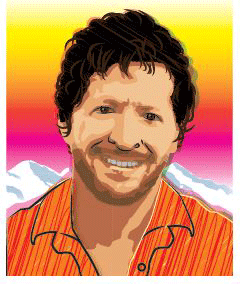Proust questionnaire: Benjamin Ross, MD

What profession might you have pursued, if not medicine?
Fighter pilot or high-altitude climber.
Which talent would you most like to have?
Singing.
What do you consider your greatest achievement?
A successful balance between a busy surgical practice and raising a family.
Who are your heroes?
I see heroes every day—essentially ordinary people having to deal with extraordinary hardships.
What is your idea of perfect happiness?
Dining alfresco in my backyard on a summer evening with family, good friends, and a bottle of Black Hills Nota Bene followed by a Cohiba Robusto.
What is your greatest fear?
Harm to my children.
What characteristic do your favorite patients share?
Honesty, courage, generosity.
Which living physician do you most admire?
Dr John Sullivan, cardiac surgeon at Queen Elizabeth II Health Sciences Centre in Halifax. He was a mentor for me and hands down the most technically gifted surgeon I have ever seen. I continually witnessed him save lives in a miraculous fashion.
What is your favorite activity?
High-altitude climbing, surfing, playing music with friends.
Which words or phrases do you most overuse?
No worries.
What technological medical advance do you most anticipate?
A complete overhaul of e-health records, more direct patient access to specialists, and greater transparency/access to surgeon and hospital performance data.
What is your most marked characteristic?
Patience, empathy, focus.
What do you most value in your colleagues?
Skill and integrity.
Who are your favorite writers?
Cormac McCarthy, Ernest Hemingway, and Pablo Neruda.
What is your greatest regret?
“Regrets, I’ve had a few. But then again, too few to mention.” From “My Way” by Paul Anka.
How would you like to die?
Is my wife going to read this?
What is your motto?
“To strive, to seek, to find, and not to yield.” From “Ulysses” by Lord Alfred Tennyson.
hidden
Dr Ross is a graduate of UBC Medical School and he completed his residency in general surgery at Dalhousie University. Dr Ross ran a busy community-based practice in general surgery until recently retiring due to young-onset Parkinson disease.
